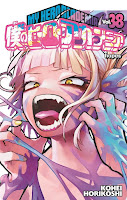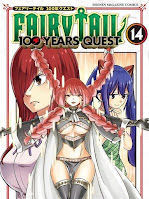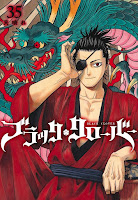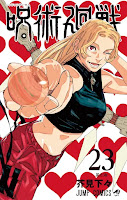Wano Country is a country in the New World that is not affiliated with the World Government. It is currently under the rule of its shogun, Kurozumi Orochi, and occupied by the Beasts Pirates under Kaido. Previously, Wano was ruled by the Kozuki Family, until the family's usurper, Orochi, conspired to overthrow and supersede their shogunate 26 years before the beginning of the story. Hundreds of years ago, Wano was known as the Country of Gold. First mentioned by Hogback during the Thriller Bark Arc, Wano is the primary setting of the Wano Country Arc. The country strictly follows a policy of isolationism, meaning that contact with outsiders such as pirates and other countries is prohibited. Leaving the country's borders is also considered a crime. Outsiders who enter the country will be immediately attacked. This policy was maintained as a result of the country's geography which makes an invasion extremely difficult, as well as its powerful samurai warriors. During his visit to Laugh Tale, Kozuki Oden learned that Wano was once connected with the rest of the world, but became isolated due to a certain purpose. After learning about the true history of the world, he reached the conclusion that Wano should be opened to the world before Joy Boy returns. However, he was unable to accomplish this, as he was overthrown and eventually executed by Kurozumi Orochi and Kaido. Wano has its own currency: Silver), Gold and Platinum coinage instead of Belly. 5 Silver is stated to be too little to afford a week's worth of clean water whilst 500 Gold is considered a hefty sum, and a mere one Platinum coin is (or at least was four decades ago) enough to build a house.
Wano also has its own newspaper, which only covers national events, and the citizens do not receive international news or newspapers from the News Coo, with the exception of the Beasts Pirates on Onigashima. However, most of the Beasts Pirates do not seem to keep up with or care about international news, as most of them do not recognize the Straw Hat Pirates save for Kaido and the members who were part of the Worst Generation. The lack of contact with the outside world has resulted in many legends and superstitions forming within the populace. Notably, they are unaware of what Devil Fruits are, referring to the powers gained from them as some form of Sorcery. Although the country is familiar with the concept of Haki, they are unaware of the actual term for it used by the outside world. Instead, they call it Ryuo, literally meaning "Flowing Sakura"), which they focus on the concept of flow. Despite the prohibition of having contact with pirates and other outsiders, Orochi's alliance with Kaido (who in turn has many connections outside) shows that the top echelon of the country is hypocritically disregarding their own policies, leading to discontent among some of the civilians. Orochi has also been shown meeting with outside groups himself, such as CP-0 of the World Government, to broker trade agreements, and is willing to secretly import resources that will strengthen his administration, such as battleships. He even demanded the agents deliver Vegapunk as payment for more weapons, attempting to gain an outsider to work for his country. The Wano Country is the world's foremost in smithing and metallurgy, having produced many superior artisans and craftsmen such as the legendary swordsmiths Kotetsu, Shimotsuki Kozaburo, and Tenguyama Hitetsu. The former ruling Kozuki Family invented the indestructible Poneglyphs during the Void Century. Weapons produced in Wano are of high quality, as the World Government have secretly imported the Marines' weapon supply from Wano. According to Law, the Beast Pirates's monopoly of Wano Country's supply of high quality weapons is what ensured Kaido's domination in the New World. Examples of legendary swords produced in Wano include the O Wazamono Swords Ame no Habakiri, Enma, Wado Ichimonji, Nidai Kitetsu, and Shusui (the country's national treasure). According to Basil Hawkins, Seastone originated from Wano Country and is also the only place where it can be processed into any type of weapon. In the past, Wano Country had a fair and impartial system of law where even powerful and influential figures can be punished for their crimes such as Orochi's grandfather, the previous head of the Kurozumi Family, and Oden, the heir of the shogunate during his youth. The only exception were the criminals of the then lawless region of Kuri, due to how violent and brutal the outlaws who reigned over the region.
Due to its corrupt administration, citizens who are rich enough can brazenly commit crimes and get away with it through bribery. Some ranked officials also commit capital crimes for their own reasons and find a scapegoat to cover up their tracks, as a particular magistrate who committed crossroad killings attempted to blame it all on Zorojuro in order to steal the Shusui, without so much as giving him a trial to speak for himself. The ritual of seppuku is a known form of punishment applied for criminals in the country. Defying Orochi and even speaking ill of him aloud are considered to be rebellious and a capital crime. Dissidents who openly opposed Orochi are either sentenced to death or condemned to life imprisonment in the Udon region. A man who defied Orochi's policy to work for the Beasts Pirates was executed along with his entire family. Public execution by crucifixion sometimes occur for those who oppose the shogun and are used as an example. In Wano, the Yakuza is considered to be well respected, and people associated with it are treated with admiration and fear. Wano Country has its own warriors, the samurai, who are swordsmen so powerful that not even the Marines go near them. Anyone of samurai class is apparently of high social status. Ever since Orochi took over, samurai became the only ones legally allowed to carry katana swords. Ryuma's sword, the Shusui, is considered a national treasure of Wano Country. Currently, under the Beasts Pirates' rule, some regions of Wano Country are ruled over by high ranking members and associates of the crew. As a result, those people's subordinates have jurisdiction over part of the region and have the authority to pass judgement over the residents. Wano used to have dojos for the teaching of swordsmanship and martial arts, such as kendo, judo, and karate. As a way to prevent any rebellion, Orochi outlawed those institutions from operating ever since he became Wano's shogun. Women from Wano are expected to be modest and speak gracefully and quietly, though they are allowed to become samurai or ninja. Women are referred with the prefix honorific "O-". While in the past the justice system is fair and impartial, Orochi's corrupt social hierarchy dictates that high-class citizens are permitted to dominate over the lower-class, from ordering them around to outright killing them without legal repercussions. The Kozuki Family were master philologists, having been the one to inscribe the lost ancient language of the Poneglyphs onto the steles themselves during the Void Century, with their ancestors starting a family tradition of passing on those specialized knowledge and skills to their descendants. With the death of both Sukiyaki and Oden, the Kozuki Family's tradition of passing on their ancient philology knowledge and skills to future descendants has ended, as Momonosuke and Hiyori were unable to learn it from their father who was executed when both were still children. According to Kin'emon, there is a "Fire Festival" that is held at Wano Country. It is a yearly event dedicate for the Beasts Pirates for saving the nation from the supposed evil Kozuki Family, during which the the shogun, Kurozumi Orochi, and his entourage travel to Kaido's residents on Onigashima to offer their respects. However, in reality, it is a party held by the Beasts Pirates and their allies.
Wano also has its own newspaper, which only covers national events, and the citizens do not receive international news or newspapers from the News Coo, with the exception of the Beasts Pirates on Onigashima. However, most of the Beasts Pirates do not seem to keep up with or care about international news, as most of them do not recognize the Straw Hat Pirates save for Kaido and the members who were part of the Worst Generation. The lack of contact with the outside world has resulted in many legends and superstitions forming within the populace. Notably, they are unaware of what Devil Fruits are, referring to the powers gained from them as some form of Sorcery. Although the country is familiar with the concept of Haki, they are unaware of the actual term for it used by the outside world. Instead, they call it Ryuo, literally meaning "Flowing Sakura"), which they focus on the concept of flow. Despite the prohibition of having contact with pirates and other outsiders, Orochi's alliance with Kaido (who in turn has many connections outside) shows that the top echelon of the country is hypocritically disregarding their own policies, leading to discontent among some of the civilians. Orochi has also been shown meeting with outside groups himself, such as CP-0 of the World Government, to broker trade agreements, and is willing to secretly import resources that will strengthen his administration, such as battleships. He even demanded the agents deliver Vegapunk as payment for more weapons, attempting to gain an outsider to work for his country. The Wano Country is the world's foremost in smithing and metallurgy, having produced many superior artisans and craftsmen such as the legendary swordsmiths Kotetsu, Shimotsuki Kozaburo, and Tenguyama Hitetsu. The former ruling Kozuki Family invented the indestructible Poneglyphs during the Void Century. Weapons produced in Wano are of high quality, as the World Government have secretly imported the Marines' weapon supply from Wano. According to Law, the Beast Pirates's monopoly of Wano Country's supply of high quality weapons is what ensured Kaido's domination in the New World. Examples of legendary swords produced in Wano include the O Wazamono Swords Ame no Habakiri, Enma, Wado Ichimonji, Nidai Kitetsu, and Shusui (the country's national treasure). According to Basil Hawkins, Seastone originated from Wano Country and is also the only place where it can be processed into any type of weapon. In the past, Wano Country had a fair and impartial system of law where even powerful and influential figures can be punished for their crimes such as Orochi's grandfather, the previous head of the Kurozumi Family, and Oden, the heir of the shogunate during his youth. The only exception were the criminals of the then lawless region of Kuri, due to how violent and brutal the outlaws who reigned over the region.
Due to its corrupt administration, citizens who are rich enough can brazenly commit crimes and get away with it through bribery. Some ranked officials also commit capital crimes for their own reasons and find a scapegoat to cover up their tracks, as a particular magistrate who committed crossroad killings attempted to blame it all on Zorojuro in order to steal the Shusui, without so much as giving him a trial to speak for himself. The ritual of seppuku is a known form of punishment applied for criminals in the country. Defying Orochi and even speaking ill of him aloud are considered to be rebellious and a capital crime. Dissidents who openly opposed Orochi are either sentenced to death or condemned to life imprisonment in the Udon region. A man who defied Orochi's policy to work for the Beasts Pirates was executed along with his entire family. Public execution by crucifixion sometimes occur for those who oppose the shogun and are used as an example. In Wano, the Yakuza is considered to be well respected, and people associated with it are treated with admiration and fear. Wano Country has its own warriors, the samurai, who are swordsmen so powerful that not even the Marines go near them. Anyone of samurai class is apparently of high social status. Ever since Orochi took over, samurai became the only ones legally allowed to carry katana swords. Ryuma's sword, the Shusui, is considered a national treasure of Wano Country. Currently, under the Beasts Pirates' rule, some regions of Wano Country are ruled over by high ranking members and associates of the crew. As a result, those people's subordinates have jurisdiction over part of the region and have the authority to pass judgement over the residents. Wano used to have dojos for the teaching of swordsmanship and martial arts, such as kendo, judo, and karate. As a way to prevent any rebellion, Orochi outlawed those institutions from operating ever since he became Wano's shogun. Women from Wano are expected to be modest and speak gracefully and quietly, though they are allowed to become samurai or ninja. Women are referred with the prefix honorific "O-". While in the past the justice system is fair and impartial, Orochi's corrupt social hierarchy dictates that high-class citizens are permitted to dominate over the lower-class, from ordering them around to outright killing them without legal repercussions. The Kozuki Family were master philologists, having been the one to inscribe the lost ancient language of the Poneglyphs onto the steles themselves during the Void Century, with their ancestors starting a family tradition of passing on those specialized knowledge and skills to their descendants. With the death of both Sukiyaki and Oden, the Kozuki Family's tradition of passing on their ancient philology knowledge and skills to future descendants has ended, as Momonosuke and Hiyori were unable to learn it from their father who was executed when both were still children. According to Kin'emon, there is a "Fire Festival" that is held at Wano Country. It is a yearly event dedicate for the Beasts Pirates for saving the nation from the supposed evil Kozuki Family, during which the the shogun, Kurozumi Orochi, and his entourage travel to Kaido's residents on Onigashima to offer their respects. However, in reality, it is a party held by the Beasts Pirates and their allies.
 One Piece 1102
One Piece 1102  Boruto Two Blue Vortex 63
Boruto Two Blue Vortex 63 Boku no Hero Academia 409
Boku no Hero Academia 409 Fairy Tail 100 Years Quest 149
Fairy Tail 100 Years Quest 149 One Piece 1102 News And Spoiler
One Piece 1102 News And Spoiler Black Clover 369
Black Clover 369 Jujutsu Kaisen 246
Jujutsu Kaisen 246


